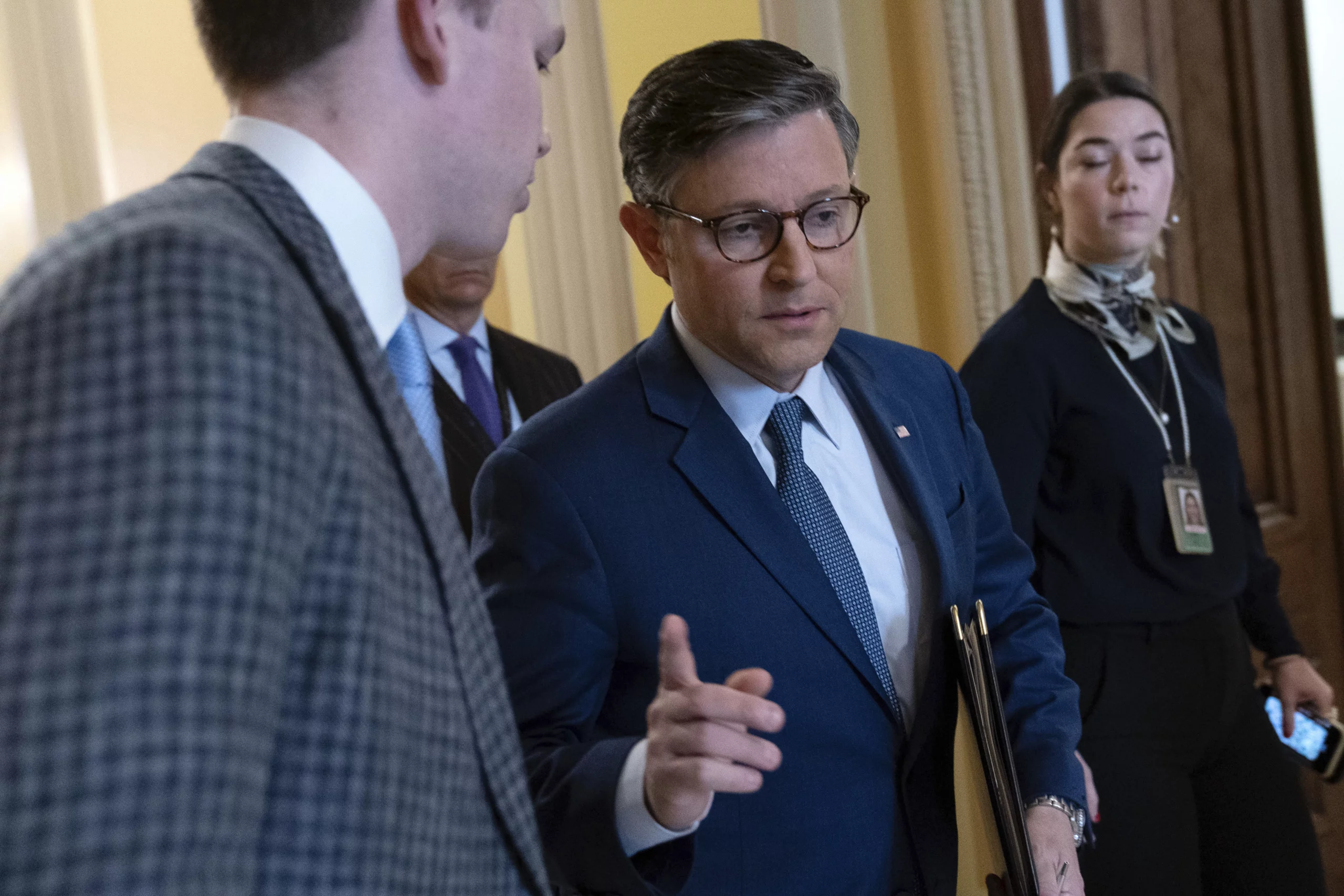

The House is set to return to Capitol Hill on Tuesday with just two weeks before a scheduled government shutdown and virtually no progress on a spending deal to avoid it.
Meanwhile, GOP leaders are focused on teeing up a number of messaging bills to combat “wokeness” in the federal government, with legislation such as the End Woke Higher Education Act and Protecting Americans’ Investments from Woke Policies Act. The House schedule indicates “an item related to government funding may be considered” at some point during the week, but it’s not clear whether Speaker Mike Johnson (R-LA) has made any progress since pulling his continuing resolution from the floor last week.
Johnson unveiled his plan to fund the government earlier this month, proposing to extend fiscal 2024 spending levels into next year but only if lawmakers attach the Republicans’ SAVE Act, which would require proof of citizenship for voter registration. Although that caveat was made to appease some of his most hard-line members, the proposal was rejected by some of those very same Republicans who demanded including spending cuts even at the risk of a shutdown.
As a result, Johnson was forced to pull the vote from consideration just hours before it was scheduled to receive a vote on the floor. The speaker said he and other GOP leaders would continue discussions over the weekend, although it’s not clear whether a deal has been made to convince key holdouts to switch their vote.
Johnson, for his part, doesn’t seem too rushed. The speaker has several options he could pursue.
He could tweak the proposal to get more of his hard-liners on board, although a handful of lawmakers in the self-described “Never CR” group have vowed not to support a stopgap spending bill regardless of what policies are attached.
Johnson could also move forward with a so-called “clean” continuing resolution with no policy riders, which would likely garner support from Democrats to help move it past the finish line. Of course, relying on his colleagues across the aisle to pass a spending deal is certain to anger hard-right Republicans, putting Johnson in a tough spot as he considers his next moves.
If that doesn’t work out, Johnson could wait for the Senate to move its own continuing resolution forward and vote on that instead. Such a proposal would likely postpone the deadline to mid-December, as it has typically done in previous years.
Meanwhile, the Senate will move forward with its own messaging bills this week with a vote scheduled on Sen. Tammy Duckworth’s (D-IL) Right to IVF Act. The vote is meant to squeeze Senate Republicans who have previously blocked the bill from consideration but now face promises from former President Donald Trump on the campaign trail to require private insurance companies to cover the fertilization procedure.
“We have seen the Republican Party’s nominee for president claim to be ‘a leader in fertilization,’” Senate Majority Leader Chuck Schumer (D-NY) wrote in a letter to colleagues Sunday. “So, we are going to give our Republican colleagues another chance to show the American people where they stand.”
CLICK HERE TO READ MORE FROM THE WASHINGTON EXAMINER
Congress has until the end of September to pass its annual budget before the new fiscal year begins on Oct. 1. If not, the government will enter a shutdown until some sort of spending deal has passed, a fate some GOP lawmakers are looking to avoid ahead of the November election.
The concern clashes with the desires of Trump, who has pushed Republicans to pass proof-of-citizenship voting legislation as part of any funding bill ahead of the Sept. 30 deadline — even at the risk of a partial shutdown to get it done.







Shut it down,we need proof of citizenship before the vote